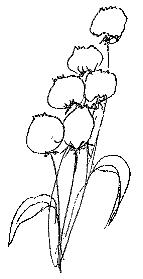
Sung to the melodious voice of Enrique Iglesias:
Would you dance if I asked you to dance
Would you run and never look back
Would you cry if you saw me crying
would you save my soul tonight
...
I can be your hero baby
I can kiss away the pain
I will stand by you forever
You can take my breath away.
Stop. Most of us would have heard this song over the radio at one time or the other. It is of course “Hero”. This is hero in a lover’s eyes.
Now switch from audio CD to TV series. This fall NBC introduced a new series about ordinary people who wake up one morning with extraordinary powers. Appropriately, it’s named Heroes.
Hero idolizing is a culture all over the world. Childhood heroes. Action heroes. Sports Heroes. Unsung Heroes. However, it is in US that such a culture is carried perhaps to the extreme.
Heroes are by definition people who have excelled in their respective fields of endeavor, surpassing their peers, or who have performed earth-shattering feats that seemingly defy human limits. They receive praise and adulation and are idols of envy.
In practically all fields here in US, there are acknowledged heroes: Tiger Woods in Golf, General MacArthur in military affairs, Stephen King in fiction writing, George Gershwin in music composition, Bruce Springsteen in rock music, Elizabeth Taylor in movies, to name just a few in the Land of Promise.
But nowhere is this culture more pervasive than in the sports arena, especially in US schools. From high schools to varsity sports, athletes are treated as a special lot, garnering all manners of sports scholarships, and are granted academic freedom in course combination, to missing classes and skipping homeworks during the heights of the sports season (but made-up classes are instituted). Then there are purported favoritism and inflated grades accorded to student athletes.
So these students athletes are put on a special pedestal, bestowed the status of heroes, and are guaranteed a future of fame, fortune, and social status, if they stay healthy and level headed.
This special recognition and the special treatment that it commands has tremendous appeal for typical American teens and they would do their best to emulate their idols, sometimes with unintended and fatal consequences blinded by a single moment of bravado.
But perhaps I’m being overly critical. By and large the American mainstream is imbibed with a righteous value system. Achievements in character building and other spiritual pursuits are emphasized and deservingly given accolades too. Many movie stars and sports celebrities have set up charity funds to help the less fortunate and to plough back to the society a part of the fortune they have earned.
Similarly, these heroes do not escape the long arm of the law when they run foul of it. Most do and live by the axiom Precepts by Examples, viewing their special status as a responsibility to serve as the moral compass for the society at large.
Thus, the American culture of idolizing heroes is one where a high standard is upheld, and the boundaries set in stone.
For Chinese immigrants in US, they bring competition, at all levels, to a higher notch. The vying mentality spills beyond the confines of classroom into society where keeping up with the Joneses and one-upmanship become a consuming pastime.
Comparing the size of the house, the price of the car, the salary/income, the children’s academic grades, the reputation of the college admitted, or even piano performance, creeps into daily conversation and seeps through the grapevine. Making to the top of the heap has been ingrained in the Chinese psyche. In many ways, this is no different from the hero syndrome afflicting the Americans.
Many strive to surpass others in the proverbial rat race. However, there is a healthy side to competition: motivation, excellence, and meritocracy and elitism. On the other hand, if it were unhealthy typified by greed-driven cut-throat, by hook or by crook approaches, then rationalizations such as the end justifies the means and negative sentiments such as sour grapes will brew further destruction, both for themselves and others.
Hence, Master Hui Zheng, in a dharma lecture entitled "The code that unlocks the heart" delivered in Denver in 2004, has imparted the following words of wisdom:
Surpassing others makes you a hero for the briefest of time;
But surpassing yourself makes you a sage for a lifetime.
I find these words to be a truism. Relatively speaking, it is easier to surpass others in the sense that we have to put in extra physical efforts to improve our techniques, following the adage that practice makes perfect.
On the other hand, surpassing ourselves have to be done at the inner mental level. We have to view ourselves honestly, and from there on upgrade our character, uplift our thinking, and uphold ourselves to a higher standard of moral behaviour. And only sages can do that.
As the saying goes, Rome is not built in one day, so is surpassing ourselves as an accumulation of incremental deeds of virtue, of compassion, of helping others. Self criticism is always hard while critiquing others seems natural. It takes courage, moral strength, and character to take the first step toward surpassing ourselves on the route to becoming sages. To complete the journey takes perseverance, tenacity, and the unwavering belief that surpassing others is a momentary victory; and only by surpassing ourselves can we claim a lifelong triumph.
So let's begin today and do things a little better than yesterday, day in and day out, always mindful of past mistakes, and devoting a few minutes a day for self reflection, for contemplation, for clarity, and for knowing yourself better. May you succeed in bridging the chasm within your own heart.

No comments:
Post a Comment